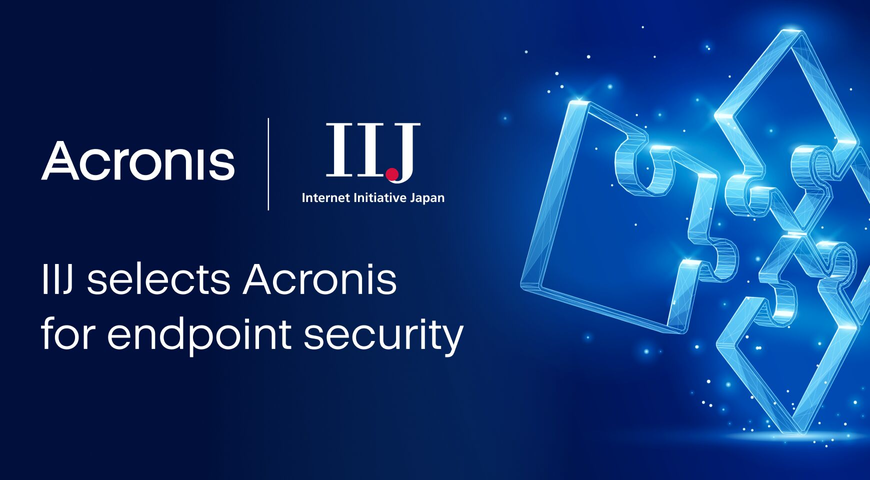What is an MSP (Managed Service Provider)?
At the start of the dot.com era, the faster internet speed allowed IT professionals to trouble shoot programs and applications from a remote location. This helped launch the managed IT services industry in the early 2000s. IT professional services/consulting organizations started to hire and maintain a staff of IT experts, who provide technical services to organizations from a central location.
Today, an MSP provides defined, remote IT services to organizations that cannot afford and/or do not have the internal expertise to manage their systems, databases, and applications in-house. Adopting managed services can save an organization both time and money, ensure that the organization stays current with technologies, and let the organization focus on objectives critical to running the business. The types of services MSPs can offer include:
⦁ Help desk
⦁ Endpoint management
⦁ Managed infrastructure
⦁ Managed applications
⦁ Managed networks and firewalls
⦁ Endpoint security
⦁ Business VoIP
⦁ Managed print
⦁ Database optimization/management
⦁ Managed cloud services
⦁ IT staff augmentation/co-management
⦁ IT strategy services
What is an MSSP (Managed Security Service Provider)?
In the late 1990s, internet service providers (ISPs) began offering their clients managed firewall appliances and services. This kick-started the concept of managed security services and over time, MSSPs evolved their portfolio to focus exclusively on system and data security. The evolution of cloud services also created an additional line of business for MSSPs. Today, organizations engage MSSPs because they cannot afford and/or do not have the internal expertise to manage system and data security.
MSSPs provide security monitoring and management services to organizations to ensure they are protected from cybersecurity threats. The types of services MSSPs can offer include threat monitoring and intrusion detection, firewall management, patch management, endpoint protection, and penetration testing as examples.
What are some examples of Managed IT Security Services?
These are just some examples of the managed security services the MSSPs offer their clients.
⦁ Managed detection and response (24/7) to ensure the security of systems and data
⦁ Incident management and response to detect and respond to an attack
⦁ Security asset management to continuously identify an organization’s IT assets and ensure they’re accessible only by authorized personnel and all security gaps are closed
⦁ Firewall management, configuration, and monitoring to ensure a secure network
⦁ Managed endpoint detection and prevention to block threats at the device level
⦁ Managed network security to identify and respond to network threats
⦁ Managed threat detection to detect and isolate advanced threats that evade existing security solutions
⦁ Patch/vulnerability management to ensure that operating system and application patches are installed on a timely basis
⦁ Virtual private network (VPN) management to ensure a business has a safe, encrypted, online connection to the corporate network
⦁ Managed risk assessments and compliance to evaluate a client’s security posture using industry-best standards and ensure regulatory compliance with standards such as PCI DSS, HIPAA, and ISO, and close attack vectors to network, mobile, and web environments
⦁ Security awareness to improve a client’s security posture and ensure the organization is prepared for cyberattack at all levels
⦁ Cyber breach forensic services to identify incidents, and collect, analyze, and report evidence
⦁ An incident response team to plan for and response to incidents on behalf of a client
Difference between an MSP and MSSP
While MSPs and MSSPs both provide third-party services to businesses; their focus is very different. An MSP delivers network, application, database and other general IT support and services while an MSSP is exclusively focused on providing cybersecurity services. While MSSPs provide incident response planning and services, an MSP is more reactive – they are called when something happens.
To effectively provide network support, an MSP uses a network operations center (NOC), which manages network-related incidents and alerts to reduce downtime.
MSSPs typically have a high-availability security operations center (SOC) which continuously manages and monitors system and data security for its clients.
Many MSPs partner and contract with MSSPs that offer specific security services, including managed detection and response, intrusion detection and prevention, incident planning and management, and more.
An Acronis solution for MSP and MSSP
Acronis Cyber Protect Cloud, empowers MSPs and MSSPs with integrated backup, disaster recovery, next-generation anti-malware, email security, endpoint protection management, vulnerability assessment, and patch management capabilities to detect and eliminate threats before they damage your clients’ environments. It is the only solution that natively integrates cybersecurity, data protection, and endpoint protection management to protect your clients’ endpoints, systems, and data. This synergy eliminates complexity, so MSSPs can mitigate/eliminate risks for clients better while keeping costs down. It provides:
⦁ The industry’s best backup and recovery with full-image and file-level backup and recovery to safeguard the data across more than 20 workloads – with near-zero recovery point objectives (RPOs) and recovery time objectives (RTOs).
⦁ Essential cyber protection at no additional cost with a next-generation behavioral detection engine that stops malware, ransomware, and zero-day attacks on your client’s endpoints and systems.
⦁ Protection management that is built for MSPs and MSSPs to enable thorough post-incident investigations and proper remediation.
Smaller MSPs can use Acronis Cyber Protect Cloud to protect and secure their clients’ systems and data, automate security tasks, lower risk, close gaps, and improve a client’s security posture.
Larger MSSPs that are targeting MSPs can offer Acronis Cyber Protect Cloud as a service, which makes it easy for an MSP to manage its clients’ security capabilities, backup, and disaster recovery.
Larger MSSPs can widen their market opportunity by targeting smaller organizations and using Acronis Cyber Protect Cloud and its capabilities to provide lower-cost managed security services.
You can also expand your services even further with advanced protection packs and unique cyber protection capabilities, allowing you to control your costs by paying only for the functionalities your clients need. Advanced packs include:
⦁ Next-generation anti-malware, which uses ⦁ machine intelligence (MI)-based technologies to prevent emerging/new malware along with signature-based engine for fast detection of known malware
⦁ Global threat monitoring and smart, actionable alerts from Acronis Cyber Protection Operation Centers (CPOC) so you can stay well-informed about malware, vulnerabilities, natural disasters, and other global events that may affect your clients’ data protection, so you can take the recommended actions to protect them. For example, this may result in more frequent backups, deeper scans, or concrete patch installations.
⦁ Forensic backup that allows you to collect digital evidence data, include them in disk-level backups that are stored in a secure place to protect them from cyber threats, and use them for future investigations
⦁ Patch management for Microsoft and 230+ third-party applications on Windows, allowing you to easily schedule or manually deploy patches to keep your clients’ data safe
⦁ Drive (hard disk) Health using MI-based technology to predict disk issues and alert you to take precautionary measures to protect your clients’ data and improve uptime
⦁ Software inventory collection with automatic or on-demand scans to provide deep visibility into your clients’ software inventory
⦁ Hardware inventory collection so you know how many devices your client needs to protect
⦁ Fail-safe patching by generating an image backup of your clients’ systems to enable easy recovery in case a patch renders your client’s system unstable
Advanced backup
⦁ Protection for more than 20 workload types from a single console, including Microsoft Exchange, Microsoft SQL Server, Oracle DBMS Real Application clusters, and SAP HAN
⦁ A data protection map that tracks data distribution across your clients’ machines, monitors the protection status of files, and uses the collected data as the basis for compliance reports
⦁ Continuous Data Protection that ensures you will not lose your clients’ data changes that are made between scheduled backups
Advanced disaster recovery provides disaster recovery orchestration using runbooks – a set of instructions that define how to spin up your client’s production environment in the cloud and provide fast and reliable recovery of your clients’ applications, systems, and data on any device, from any incident.
Advanced email security blocks email threats, including spam, phishing, business email compromise (BEC), malware, advanced persistent threats (APTs), and zero-day vulnerabilities before they reach end-users’ Microsoft 365, Google Workspace, Open-Xchange, or on-premises mailboxes.
Advanced file sync and share extends Acronis Cyber Protect Cloud’s integrated secure file-sharing capabilities with fully remote notarization, verification, and electronic signing to ensure data authenticity and reduce fraud by layering advanced features on top of the essential, pay-as-you-go service.
With Acronis Cyber Protect Cloud, you can provide your clients with multiple layers of protection for their endpoints, ensure their data, applications, and systems are always available and protected, and provide the shortest time to recover their data and systems no matter what happens.
About Acronis
Acronis is a Swiss company, founded in Singapore. Celebrating two decades of innovation, Acronis has more than 1,800 employees in 45 locations. The Acronis Cyber Protect Cloud solution is available in 26 languages in over 150 countries and is used by 20,000 service providers to protect over 750,000 businesses.





